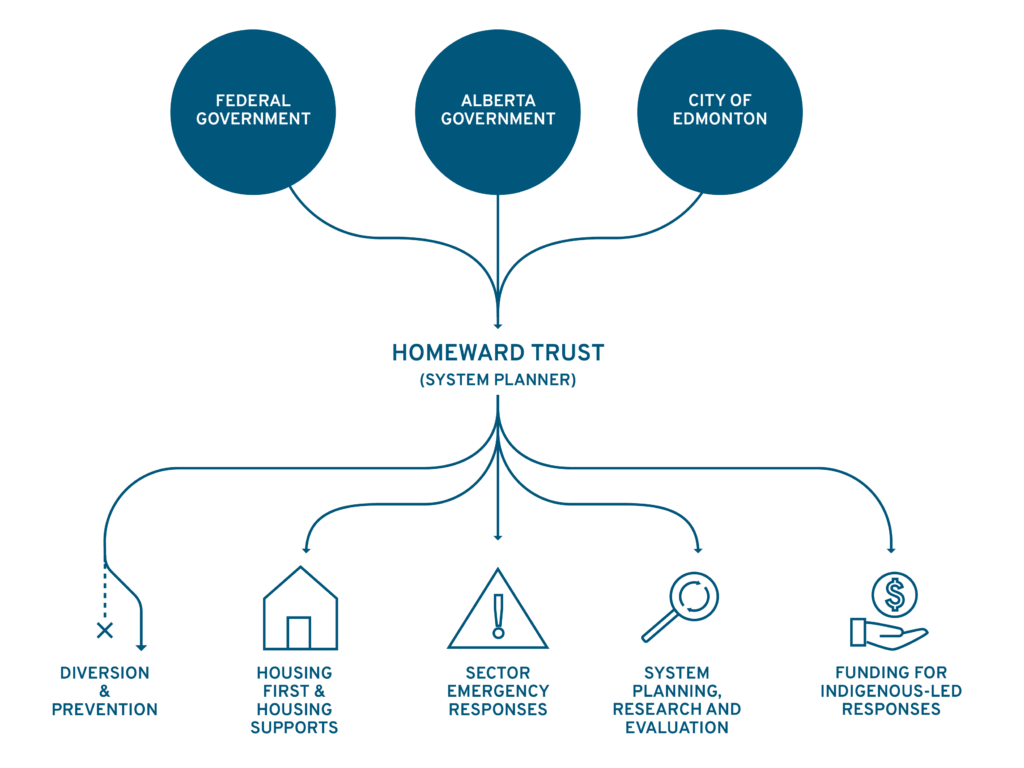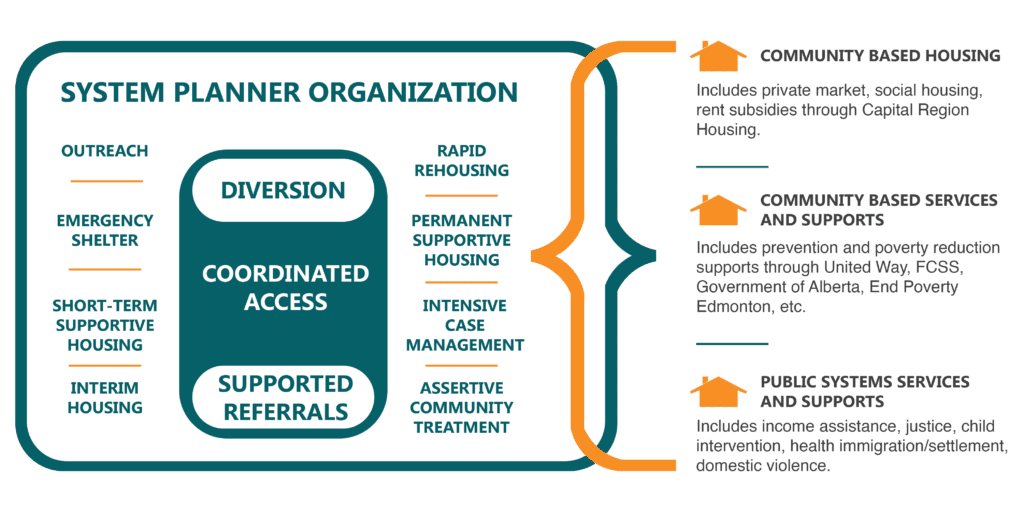System Planning
Systems planning is the analysis, planning and design of an integrated system and defined service delivery components that work together towards a common end; in this case to prevent, reduce and end homelessness. It requires identifying the basic components of a system and understanding how these relate to one another. Alignment across the system is integral to ensure the components of the system work together for maximum impact.
Homeward Trust acts as the System Planner Organization that takes on day-to-day system operations and strategy work advancing the Plan to End Homelessness. In this role we act as the Community-Based Organization for the Government of Alberta’s investment in ending homelessness. Homeward Trust is also a participant in the ‘Systems Planning Collective’ led by A Way Home Canada, Canadian Observatory on Homelessness and HelpSeeker.
The System Planner Organization acts swiftly in its strategic decision-making with community input as appropriate, while convening partners for collective action. In the context of homeless-serving system planning, the ability to apply funds directly to develop and implement interventions, and make real-time decisions provides valuable advantage to the System Planner Organization approach.
There are tremendous advantages to Edmonton’s approach to having a dedicated and community-based System Planner Organization leading the work. This allows one entity to align funding streams, identify needs quickly and adapt programming, and avoid competing or political interests that can erode its focus on ending homelessness.

Systems Integration
The homeless-serving system cannot end homelessness on its own; to fully achieve the goals of the Plan, affordable housing and rent supports are essential. To prevent homelessness and mitigate risk of those housed from becoming homeless again, we rely on the work of our poverty reduction and prevention partners, including EndPoverty Edmonton, Capital Region Housing, Family and Community Support Services, as well as public systems and community services working in income assistance, health, child intervention, justice, and immigration and settlement.
None of these systems exist in isolation, and much of their work overlaps to create a seamless approach; however, it is essential that they work with clarity on respective roles and accountability.

Key Roles
- Lead development and implementation of Plans to End Homelessness;
- Design and coordinate homeless-serving system;
- Develop and implement Homeless Management Information System (HMIS);
- Engage key stakeholders, including people with lived experience, throughout Plan activities;
- Manage and coordinate diverse funding streams towards common ending homelessness objectives and local needs;
- Ensure comprehensive performance management, service standards, quality assurance and investment monitoring;
- Advance Housing First and other innovative, evidence-based supports and housing approaches tailored to local contexts;
- Support best practice learnings for agencies, policy makers, and peers by sharing learnings, providing technical assistance and training;
- Champion homelessness issues locally, provincially and nationally.